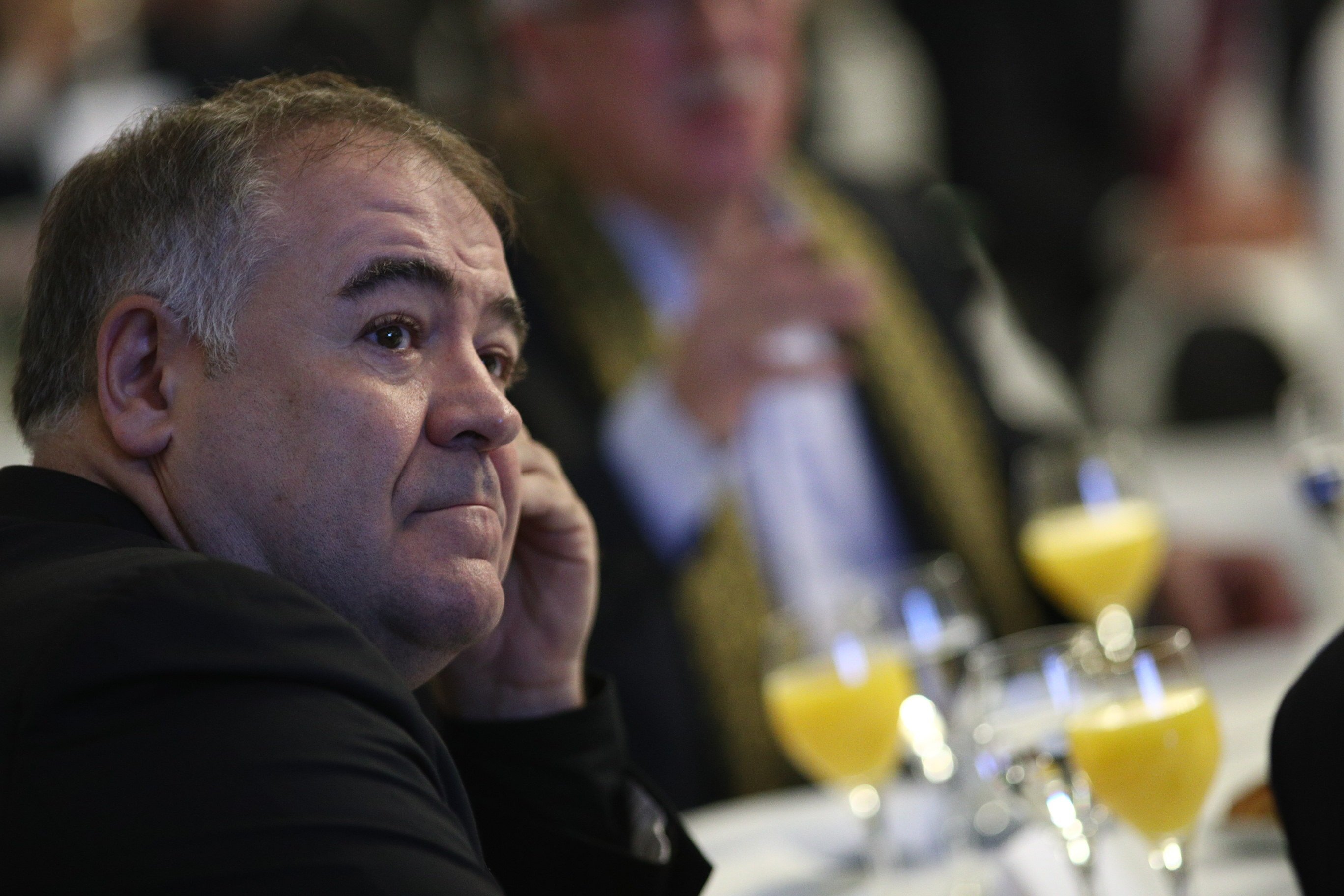There has been a new leak of former Spanish police commissioner José Manuel Villarejo's recordings, this time the tapes point in a slightly different direction from usual. The new leak, published by newspaper Crónica Libre, collects the conversations between Villarejo and Spanish journalist Antonio García Ferreras, host of the program Al Rojo Vivo, where the latter confesses to him that he did not trust the veracity of the evidence that sustained that Pablo Iglesias had an account in the Grenadine Islands, yet in spite of everything, he informed his program, trusting Eduardo Inda, director of Spanish newspaper OKDiario, who initially published the information. "I told him 'Eduardo, this is very serious, I'll go with it, but that is very delicate and it is too sloppy'" Ferreras acknowledged to Villarejo.
Although Ferreras repeatedly shared his doubts about this information with Villarejo and the former commissioner confirmed it was not reliable, the affection for Eduardo Inda got the journalist to give the false news of Iglesias' accounts abroad. In the new leaked recordings, Ferreras is full of praise for Inda and the close relationship between the two is palpable. "I love him like hell, I love him like a brother", said Ferreras to Villarejo, who replied: "Come on, do you doubt that I love him too"?
Esta fake new apareció en plena campaña de las generales, con @Podemos superando al PSOE en las encuestas. Esto tiene muchos nombres, pero ninguno es periodismo. Difundir bulos es un grave atentado a la democracia.
— Jaume Asens (@Jaumeasens) July 10, 2022
Toda mi solidaridad con @PabloIglesias. pic.twitter.com/VavMmG8kpw
It is not only the two journalists who appreciate each other, the leaked recorded conversations show that the former commissioner and Ferreras also maintain a good relationship: "Do you know that you are my weakness? Humbly, I am therefore completely devoted to you," Villarejo told him.
Pablo Iglesias responds
At the centre of all this controversy is Pablo Iglesias, who was harmed by the information published by Inda and Ferreras, despite the latter's doubts about its veracity as expressed to Villarejo. Iglesias has not remained silent and when this information was published last Saturday night, he declared in the Catalan TV program FAQS: "How can you give information when you think it is false? How can a journalist give information he thinks is shoddy? Is that journalism?".
The former Podemos leader recounted how he tried to explain to Ferreras that Inda's publication was false, but the Al Rojo Vivo's host replied that he trusted Inda's word. "What I did not know is that when he talked to Villarejo he clearly knew it was a lie," lamented Iglesias. Through his social networks, he stated that Ferreras "should never work as a journalist again".
Ferreras admits to meeting with Villarejo
Today, on his program, Ferreras made a four-minute discourse loaded, once again, with sentences about good journalism, relying on the staging and rhythm in the intonation rather than the content of the message itself, and denying the major accusation: "Of course we will talk about Villarejo's recordings, we do not have anything to hide here. I have already explained several times that I met with him on three occasions". In this first sentence, he contradicts himself already. In 2019, in a tense interview with Pablo Iglesias, he raised his voice to say that he "had never worked with Villarejo". The complicity, on different sides, of the former commissioner, Ferreras and Inda is evident.
A contradictory discourse
But this is not the end of the discourse. "We have never knowingly given false information. Neither this one about the Grenadines (where the fake Iglesias' accounts were said to be located), nor any other. Not about Podemos, nor about anyone. We are talking about recordings which took place after the news came out. A news item about an alleged account in the Grenadines, and we said so: an 'alleged' account. We published it quoting the media that first put it out, as it is usually done. The first thing we did was call Iglesias. Of course it seemed strange and even crude to us, and we said so, but the police claimed to have this paper and that they were investigating it. That's why we gave it quoting the media and that's why we immediately called Iglesias in this same program". Another contradiction. While it is true that the conversation with Villarejo happened after the news were published, Ferreras forgot to mention that in this one he explains to the former commissioner that before echoing the news, he spoke with Inda himself.
"All for journalism"
Finally, Ferreras tried to save his dignity for the rest of the discourse. "They lie when they say that we knowingly gave false information. That is a lie. When news of the alleged account in the Grenadines broke out, we published it quoting the media along with the response and the immediate denial of Pablo Iglesias. While investigating, we arrived to Villarejo. The man that several sources pointed to as the one who could be behind these documents. We had to ask him about it. And he explained to us that he did not give credibility to these papers that were being studied by the Spanish police which, according to him, were in the possession of the deputy operational director of the Spanish police".
Ferreras concluded: "This happens because we do journalism! The campaigns against Podemos were a disgrace, but now they want to do something similar against us. We have endured continuous attacks and, thanks to La Sexta (one of the main Spanish TV channels), which never vetoed Podemos, we were labelled as the creators of the party. And now they accuse us of the opposite, it's delirious". The journalist promised he will continue talking about the subject, but it seems as if he already said everything he had to say in this opening statement.

